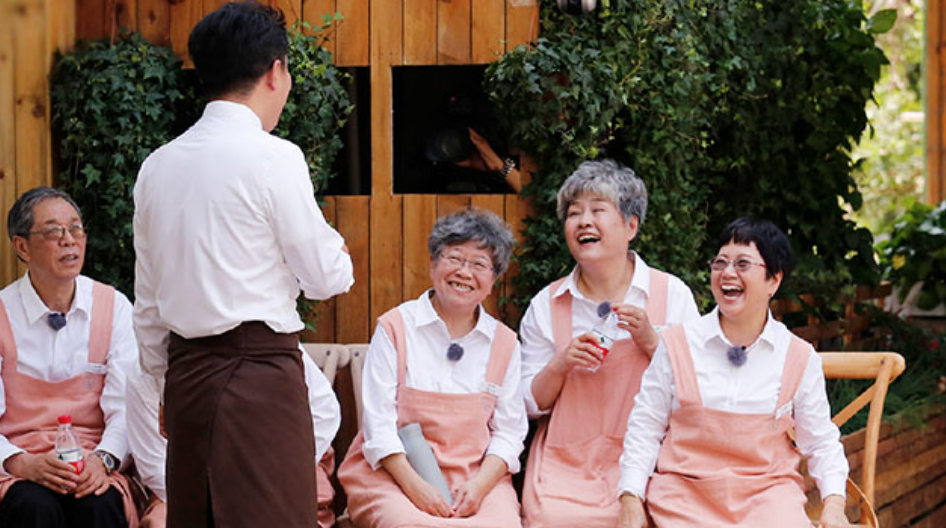Chinese celebrities spread the message of understanding and acceptance by working alongside elderly people with cognitive disorders at the Forget-Me-Not Café.

A still from the reality series “Forget-Me-Not Café,” which premiered in late-April on Tencent’s streaming service. From @腾讯视频忘不了餐厅 on Weibo)
A new Chinese reality series wants its viewers to remember what it’s like to forget.
Coproduced by streaming service Tencent Video, “Forget-Me-Not Café” casts a spotlight on people with cognitive disorders, including Alzheimer’s, in an effort to shun the shame associated with dementia and create more awareness of the condition, according to the show’s producers. The 10-episode series, which premiered on April 30, puts three celebrities and five people with cognitive disorders together to work alongside one another at a café in the southern city of Shenzhen.
“We hope that more young people will understand and pay more attention to elderly people with [Alzheimer’s],” Li Yang, the show’s executive producer, said during a press conference ahead of the premiere. “At the same time, we also hope this program will give the elderly people the opportunity to interact with others.”
As a form of dementia impacting an individual’s memory and cognitive abilities, Alzheimer’s affects over 9 million Chinese, according to the World Health Organization — and this figure is likely to rise due to the country’s aging population. A shortage of trained caregivers and a deep-seated social stigma around people with mental health issues means many living with Alzheimer’s feel isolated, living outside the public eye and under the watchful eyes of family members.
But “Forget-Me-Not Café” is on a mission to challenge unfounded stereotypes and change people’s minds. The five people with cognitive disorders, aged 65 to 81, are teamed up with the well-known actor Huang Bo and a few famous Chinese chefs: The older stars must take down food orders, chat with customers, and then serve them correctly — though this often proves easier said than done. The message the producers hope to deliver is that, whatever people’s perceptions may be, people with dementia are still eager to socialize and pursue their passions. Continue to read the full article here.
– This article originally appeared on Sixth Tone.





